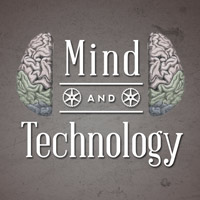Is Artificial Intelligence Possible?

Over the past half-century, Artificial Intelligence has been all the rage among computer scientists, and among many other scientists and philosophers and the general public. Can machines think? Is it possible that a computer could have intentions and desires and understanding of its own?
Many otherwise well-informed people have taken it for granted that machines are capable of thought, particularly if a substantial level of complexity is reached. Several philosophers and scientists have argued that AI is not possible — machines will never be capable of thought. They are right to deny the possibility of AI.
 The arguments against AI are several. I believe the most convincing is the argument about representation and instantiation of universals. The argument presumes an Aristotelian perspective, although the specifics are clear and compelling without assuming more than the commonsense rudiments of Aristotle.
The arguments against AI are several. I believe the most convincing is the argument about representation and instantiation of universals. The argument presumes an Aristotelian perspective, although the specifics are clear and compelling without assuming more than the commonsense rudiments of Aristotle.
To see why a machine cannot think, consider the difference between universals and particulars. Particulars are specific things that exist in the world — a particular apple, or pencil, or person. Universals are concepts which do not exist as particulars, but are real in some sense. Love, mercy, and justice are universals. Thought is the perception of particulars and the contemplation of universals.
The difference between representation and instantiation of universals is key to understanding why machines cannot think.
Both particulars and universals can be represented in matter. I can take a photograph of an apple, and the apple is then represented on my camera’s memory card. I can write a love sonnet to my wife, and my love for my wife is represented in the sonnet on my hard drive.
It is in this sense that particulars and universals can be represented in computers. Specific arrays of electrons can represent apples and love and all sorts of things, according to the input and output of programmers and users of the machine.
But representations are not the thing itself. My photo of my apple or my sonnet to my wife are not my actual apple or my actual love for my wife. They are representations of my apple and my love — my apple and my love exist in some other way, but neither can meaningfully be said to be wholly in my computer.
Instantiation is very different from representation. Instantiation means that the thing — the particular or the universal — can be wholly present in and composed with matter. Instantiation means that the thing is in the matter — like the form of an apple is in the apple itself.
Particulars can be instantiated in matter. The form of an apple — a particular — can be instantiated in an apple. Forms of particulars are defined as forms that are instantiated in matter.
The thing that computers can’t do — no material thing can do — is exhibit instantiation of universals. No universal can be instantiated in a material thing.
Why? Universals cannot be instantiated in matter because it is the nature of universals that they are not substantial forms — that is, they are not things that can be actually present in matter. A sonnet about love is a physical thing and can be instantiated on a hard drive. Love itself is not a physical thing — it is a concept (a universal), and it cannot be instantiated in any physical form. It can be represented physically, but representation presupposes that which it represents, so a representation cannot be an instantiation.
Love cannot be instantiated in an electrical circuit, because love is a universal, not a particular. Love can be represented in matter — a sonnet to my beloved, or the word “love” in a document, but those are representations of love, not instantiations of love — not love itself.
Unlike particulars, universals cannot “in-form” — be composed to — matter. Universals can be represented in matter, but representation is very different from instantiation. My picture of Uncle Joe is not Uncle Joe. A representation presupposes the thing represented. You can only represent something that already exists, in some form (as a particular or as a universal).
So computers cannot instantiate universals. Computers cannot in themselves love, or hate, or reason, or deduce, or consider, or do anything that is a universal. Computers can represent particulars and universals, and can in some ways instantiate particulars (circuits, electrons, etc.). Representations in computers are things put into the computers by programmers and users, but cannot derive wholly from the computer itself.
Now you may ask, “If universals cannot be instantiated in matter, how can the brain, which is matter, think about a universal?”
That’s a good question. It is an argument — an ancient argument — for the immateriality of the intellect.
Image by Glysiak (Own work) [GFDL or CC BY-SA 4.0-3.0-2.5-2.0-1.0], via Wikimedia Commons.
